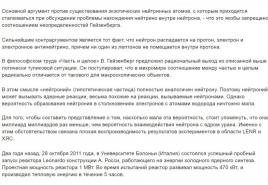Maklakov general psychology is simplified. You need to know
Maklakov A. General psychology
Part I Introduction to General Psychology 11
Chapter 1 The subject of psychology, its tasks and methods 12
11 Methodological foundations of human studies 12
12 Human and Human Sciences 16
13 Psychology as a Science 22
14 Basic methods of psychological research 26
Test questions 36
Recommended reading 37
Chapter 3 The concept of the psyche and its evolution 70
31 The concept of the psyche 70
32 Development of the psyche of animals 76
Test questions 86
Recommended reading 86
Chapter 4 The origin and development of human consciousness 88
41 The concept of consciousness 88
42 Cultural-historical concept of the development of the human psyche 95
43 Development of the human psyche 98
44 Physiological foundations of the human psyche 105
Security questions 120
Recommended reading 120
Chapter 6 Unconscious Mental Processes 149
61 General characteristics of the problem of unconscious mental processes 149
62 Unconscious inducers of conscious action 156
63 "Supraconscious" processes 159
Test questions 161
Recommended reading 162
Part 2 Mental Processes 163
Chapter 7 Sensation 164
71 General concept of sensation 164
72 Types of sensations 169
73 Basic properties and characteristics of sensations 173
74 Sensory adaptation and interaction of sensations 180
75 Development of sensations 183
76 Characteristics of the main types of sensations 184
Test questions 198
Recommended reading 199
Chapter 9 Introduction 234
91 Representation definition and basic characteristics 234
92 Views 238
93 Individual characteristics of presentation and its development 242
94 Primary Memory Images and Persevering Images 245
Test questions 246
Recommended reading 246
Chapter 10 Memory 247
101 Definition and general characteristics of memory 247
102 Basic types of memory 255
103 Basic processes and mechanisms of memory 261
104 Individual characteristics of memory and its development 275
Security questions 281
Recommended reading 282
Chapter 11 Imagination 283
111 General characteristics of imagination and its role in mental activity 283
112 Types of Imagination 286
113 Mechanisms for processing representations into imaginary images 290
114 Individual characteristics of imagination and its development 292
115 Imagination and creativity 294
Security questions 296
Recommended reading 296
Chapter 13 Speech 333
131 General characteristics of speech 333
132 Physiological foundations of speech 336
133 Theoretical problems of the origin of speech 340
134 Basic types of speech 344
135 Development of speech in a child 348
Test questions 353
Recommended reading 353
Chapter 14 Warning 354
141 Attention 354
142 Basic Attentions 363
143 The main characteristics of the properties of attention 366
144 Development of attention 370
Test questions 372
Recommended reading 372
Chapter 15 Will 373
151 General characteristics of volitional actions 373
152 Basic psychological theories of will 376
153 Physiological and motivational aspects of volitional actions 379
154 The structure of volitional action 383
155 Volitional qualities of a person and their development 387
Test questions 391
Recommended reading 391
Chapter 16 Emotions 392
161 Types of emotions and their general characteristics 392
162 Physiological foundations and psychological theories of emotions 400
163 Development of emotions and their significance in human life 408
Security questions 414
Recommended reading 415
Chapter 17 Mental Processes as Structural Elements of Mental Activity Management 416
171 Mental processes from the point of view of cyber science 416
172 Signal theory and mental processes 423
173 Information structure of nervous processes and mental images 428
Security questions 435
Recommended reading 435
Part 3 Mental states and their regulation 437
Chapter 18 Human Adaptation and the Functional State of the Body 438
181 General concept of human adaptation 438
182 General understanding of the functional state of the body 442
183 General characteristics of the states of the body and psyche 448
Test questions 455
Recommended reading 455
Chapter 19 Emotional Stress and the Regulation of Emotional States 456
191 Understanding Emotional Stress 456
192 Regulation of emotional states 462
Test questions 468
Recommended reading 468
Part 4 Mental properties of personality 469
Chapter 20 Personality 470
201 General concept of personality 470
202 The relationship of the social and biological in the personality 472
203 Formation and development of personality 481
Test questions 489
Recommended reading ………………………… 489
Chapter 21 Theoretical and Experimental Approaches to Personality Research 490
211 Personality Theories 490
212 Methodology of experimental personality research 503
Test questions 510
Recommended reading 510
Chapter 22 Direction and motives of personality activity 511
221 The concept of personality orientation and activity motivation 511
222 Psychological theories of motivation 517
223 Basic patterns of development of the motivational sphere 524
224 Motivated behavior as a characteristic of personality 528
Test questions 534
Recommended reading 534
Chapter 23 Abilities 535
231 General characteristics of human abilities 535
232 Levels of development of abilities and individual differences 539
233 The Nature of Human Ability 545
234 Ability Development 548
Test questions 551
Recommended reading 551
Chapter 24 Temperament 553
241 The concept of temperament 553
242 Summary of Teachings on Temperament 555
243 Physiological bases of temperament 560
244 Psychological characteristics of temperament and personality traits 562
Test questions 565
Recommended reading 565
Chapter 25 - Character 567
251 Concept of character 567
252 Theoretical and experimental approaches to character research 570
253 Character Building 579
Test questions 581
Recommended reading 582
INTERCUT TEXTS
Names
Ananiev Boris Gerasimovich 13
Bekhterev Vladimir Mikhailovich 32
Aristotle 42
Watson John Broadus 51
Chelpanov Georgy Ivanovich 54
Rubinshtein Sergey Leonidovich 55
Pavlov Ivan Petrovich 81
Vygotsky Lev Semenovich 94
Anokhin Petr Kuzmich 114
Leontiev Alexey Nikolaevich 126
Bernshtein Nikolay Alexandrovich 138
Freud Sigmund 158
Sherrington Charles Scott 170
Fechner Gustav Theodor 174
Luria Alexander Romanovich 182
Helmholtz German 190
Wundt Wilhelm 230
Teplov Boris Mikhailovich 240
Ebbinghaus Herman 251
Smirnov Anatoly Alexandrovich 262
Zinchenko Petr Ivanovich 264
Binet Alfred 312
Piaget Jean 327
Galperin Petr Yakovlevich 328
Ukhtomsky Alexey Alekseevich 358
Dmitry Uznadze 360
Kornilov Konstantin Nikolaevich 378
James William 387
Lange Nikolay Nikolaevich 431
Selye Hans 451
Jung Karl Gustav 494
Adler Alfred 495
Horney Karen Clementine 497
Rogers Carl Ransome 498
Maslow Abraham Harold 500
Janet Pierre Marie Feli 503
Allport Gordon Willard 507
McDougall William 521
Bandura Albert 533
Galton Francis 544
Fromm Erich 577
You need to know
Validity and reliability of the psychodiagnostic test 27
Moral principles of a psychologist 30
Prospects for graduates of psychological faculties 66
What is brainstorming? 323
Homeostatic mechanisms of the body 440
Antisocial personality 515
From the history of psychology
Classical experiment of IP Pavlova 82
Studies of functional asymmetry of the brain 112
Learning Theory 128
Hearing Theories 192
Color Vision Theories 196
Phenomenal Hint 280
Pathology of the will 381
It is interesting
What are the mechanisms of consciousness? 96
Does the phenomenon of "her" exist? 154
How is the transfer of information from the receptor to the brain? 166
How does a person recognize objects? 204
What allows a person to adequately perceive the world? 226
Can representations be studied? 237
How is the encoding and storage of information in memory 256
Childhood Amnesia 278
What creative person?287
What is the physiological basis of thinking? 302
Can other species learn human language? 342
What is the material basis of attention? 356
What does a person's emotion consist of? 406
Could “artificial intelligence” replace the human brain? 418
What shapes personality: heredity or environment? 474
Aggressive behavior 530
AUTHOR
The book offered to the attention of the reader was written in accordance with the curriculum of the course "General Psychology". The author did not set himself the task of re-evaluating the system of psychological views, but focused on the most objective and most accessible presentation of educational issues from generally recognized positions. The materials presented in this textbook are the result of a generalization of the works of well-known domestic and foreign psychologists and comply with the requirements of the State standard for training specialists.
The basis of the textbook is the work of the classics of Russian psychology:
S. L. Rubinshtein, L. S. Vygotsky, B. G. Ananyev, B. M. Teplova, A. N. Leontiev, B. F. Lomov and many other famous Russian scientists But psychology is being replenished with more and more new knowledge, in connection with which certain theoretical provisions of this scientific discipline... Therefore, there is a need to periodically update the classic educational material... When creating this book, a significant number of textbooks were analyzed and teaching aids, including such authors as Yu. B. Gippenreiter, RS Nemov, A.A. Rean, E.I. Rogov et al. The positions and views of representatives of two leading Russian psychological schools - Moscow and St. Petersburg
The publication of this textbook would not have been possible without the help of many people. The author expresses his sincere gratitude for the assistance and support in the work of the Dean of the Faculty of Psychology and Pedagogy of the Leningrad State Regional University V.L.Sitnikov, as well as Professor A.A.Rean, who took upon himself the task of reviewing the book. The author expresses his special gratitude to the staff of the Piter publishing house who were directly involved in preparing the book for publication.
A. G. MAKLAKOV
PETER
St. Petersburg
Moscow Kharkov Minsk
2001
Maklakov Anatoly Gennadievich
GENERAL PSYCHOLOGY
Series "Textbook of the New Age"
BBK 883ya7 UDC 1599 (075)
Maklakov A.G.
M15 General Psychology - St. Petersburg: Peter, 2001 - 592 s: il - (Series "Textbook of the new century")
ISВN 5-272-00062-5
The textbook was written in accordance with the training program for psychologists and teachers for the training course "General Psychology". In it, taking into account the modern achievements of psychological and pedagogical science, general issues of psychology, mental and cognitive processes, states and properties, the emotional-volitional sphere of the personality, and its individual characteristics are considered. The textbook is richly illustrated, equipped with a convenient service reference and bibliographic apparatus.
The textbook is intended for teachers, graduate students and students of psychology departments and higher pedagogical educational institutions.
© AG Maklakov, 2000
© Publishing House Peter, 2001
All rights reserved. No part of this book may be reproduced in any form whatsoever without the written permission of the copyright holders.
15VM 5-272-00062-5
Piter Buk CJSC 196105, St. Petersburg, Blagodatnaya st., 67 License ID No. 01940 dated 050600 Tax benefit - All-Russian product classifier OK 005-93, volume 2;
953000 - books and brochures
Signed for print 250601 Format 70x 100 "/ ^ Conl p l 47.73 Additional circulation 7000 copies Order No. 976 Printed from photographic forms in the FGUP" Pechatny dvor "named after AM Gorky of the Ministry of the Russian Federation for the press, television and radio broadcasting and mass media 197110, St. -Petersburg, Chkalovsky prospect, 15
If you, dear reader, are holding this book in your hands, then most likely you will have an exam in psychology. Can this book help you?
If you are striving to become a professional psychologist, then this book is unlikely to help you successfully pass the exams. It does not contain such voluminous material that a student psychologist, having read it, could claim a high mark. In the process of training, future psychologists have to study a significant number of academic disciplines, and this publication is not a panacea for preparing for the exam. It can be used only when a psychology student needs to systematize his fundamental knowledge.
If you are studying at a university in a non-psychological psychological specialty (you are a future teacher, engineer, economist, lawyer, etc.), then this book is for you. Currently, psychology has become very widespread. In almost any specialty, the State Educational Standard of Higher Professional Education involves acquainting the future specialist with the basics of psychological knowledge. When training in specific specialties, this academic discipline can be called in different ways: "Fundamentals of Psychology", "Human Psychology", "Psychology", "Psychology of Professional Activity", etc. However, no matter how the discipline is called, its main part is made up of those knowledge that belong to the category of fundamental psychological knowledge.
This book is written on the basis of the author's textbook "General Psychology", which was published for the first time in 2000 and since then has become very popular among psychology students. The material included in this book contains the bulk of the information that a student studying at a university in a non-psychological specialty must have in order to successfully pass the exam in psychology.
The author hopes that this book will not only help to pass the exam successfully, but will also awaken interest in psychology. It is impossible to live among people and not know psychology. It is possible that this book for some will serve as an impetus for a deeper knowledge of those around you.
Many talented people helped the author in the work on the book. First of all, these are the employees of the publishing house "Piter", who not only took a direct part in its preparation for publication, but also initiated its creation. The author expresses special gratitude to her daughter Eugenia, who recently graduated from the university and took the most active part in the selection of material for this book, designed to help you, dear reader, pass the exam successfully in a very difficult to study, but extremely relevant for practice academic discipline.
1. Psychology. Subject, object and methods of psychology
Psychology (from the Greek. psyche - soul, logos - doctrine, science) - the science of the laws of development and functioning psyche (as a special form of life) and mental phenomena.
Currently, the subject of study of psychology is psyche and mental phenomena. Let us dwell in more detail on what these concepts include.
Psyche - This is a property of highly organized living matter, which consists in the active reflection by the subject of the objective world, in the construction by the subject of a picture of this world that is inalienable from him and regulation on this basis of behavior and activity.
Of this definition follows a number of fundamental judgments about the nature and mechanisms of manifestation of the psyche. First, the psyche is possessed not only by living matter, but only by that which has specific organs that determine the possibility of the existence of the psyche (i.e., the nervous system, nerve nodes, etc.).
Secondly, the main feature of the psyche is the ability to reflect the objective world: highly organized living matter, which has a psyche, has the ability to receive information about the world around it. At the same time, obtaining information is associated with the creation of a certain mental image by this highly organized matter, which, with a certain measure of accuracy, is a copy of material objects of the real world.
Thirdly, the information about the surrounding world received by a living creature serves as the basis for the regulation of the internal environment of a living organism and the formation of its behavior, which in general determines the possibility of a relatively long existence of this organism in constantly changing environmental conditions.
The laws of the psyche are manifested in a variety of real-life mental phenomena.
It should be noted that there are different points of view on the structure of mental phenomena. However, the most common division of mental phenomena into three main classes: mental processes, mental states and mental properties of a person (fig. 1).
Fig. 1. The structure of mental phenomena
Mental processes act as primary regulators of human behavior. AND home distinctive feature mental processes (in comparison with other mental phenomena) is that they have start, flow and end, that is, they have dynamic characteristics, which primarily include parameters that determine the duration and stability of the mental process. In turn, mental processes can be divided into three groups: cognitive, emotional and volitional.
TO cognitive mental processes include mental processes associated with the perception and processing of information. These include sensation, perception, representation, memory, imagination, thinking, speech and attention. Thanks to these processes, a person receives information about the world around him and about himself.
Along with cognitive mental processes, they distinguish emotional mental processes.
Within the framework of this group of mental processes, such mental phenomena as affects, emotions, feelings, moods and emotional stress are considered.
Volitional mental processes are most clearly manifested in situations related to decision-making, overcoming difficulties, managing their behavior, etc.
Sometimes another group of mental processes is distinguished as an independent one - unconscious processes... It includes those processes that proceed or are carried out outside the control of consciousness. However, it is probably more appropriate to classify this group as independent mental phenomena rather than processes, since they include not only dynamic, but also static phenomena.
Mental states characterize the state of the psyche as a whole. They, like mental processes, have their own dynamics, which is characterized by duration, direction, stability and intensity. In turn, mental states affect the course and result of mental processes and can promote activity or inhibit it. Mental states include such phenomena as recovery, depression, fear, cheerfulness, despondency.
The next class of mental phenomena is mental properties of personality - characterized by greater stability and greater constancy. Under the mental properties of a person, it is customary to understand the most essential personality traits that provide a certain quantitative and qualitative level of human activity and behavior. Mental properties include focus, temperament, abilities and character. The level of development of these properties, as well as the peculiarities of the development of mental processes and the prevailing (most characteristic for a person) mental states determine the uniqueness of a person, his individuality.
The textbook was written in accordance with the training program for psychologists and teachers for the training course "General Psychology". In it, taking into account the modern achievements of psychological and pedagogical science, general issues of psychology, mental and cognitive processes, states and properties, the emotional-volitional sphere of the personality, and its individual characteristics are considered. The textbook is richly illustrated, equipped with a convenient service reference and bibliographic apparatus.
The textbook is intended for teachers, graduate students and students of psychology departments and higher pedagogical educational institutions.
Methodological foundations of human study.
How to understand another person's behavior? Why do people have different abilities? What is “soul” and what is its nature? These and other questions have always occupied the minds of people, and over time, interest in a person and his behavior has constantly increased. A rational approach to understanding the world is based on the fact that the reality around us exists independently of our consciousness, can be studied empirically, and the observed phenomena are fully explainable from scientific positions. To implement this approach, it is necessary to have a general understanding of the subject of research. In various fields of science, scientists have repeatedly attempted to formulate a holistic view of man. Of course, this idea also exists in psychology.
One of the most popular approaches to the study of man in Russian psychology was proposed by B.G. Ananyev. Assessing the importance of Ananyev's activities for domestic science, first of all, it is necessary to emphasize that he developed a fundamentally new methodological approach to the study of the human psyche. This made it possible not only to single out new sections of psychology that had not previously existed as independent, but also to take a fresh look at the person himself. Talking about the main features of development scientific knowledge about a person, Ananiev noted that the problem of a person is becoming a common problem for all science as a whole. Moreover, for scientific knowledge a person is characterized by both the ever-increasing differentiation and specialization of individual disciplines, and the tendency to combine various sciences and methods of human research. Modern science is more and more interested in the problems associated with human health, his creativity, training and, of course, his thoughts and experiences, and the study of man and human activity is carried out in a comprehensive manner, taking into account all aspects of these problems.
Free download the e-book in a convenient format, watch and read:
Download the book General Psychology, A.G. Maklakov, 2016 - fileskachat.com, fast and free download.
Download djvu
Below you can buy this book at the best discounted price with delivery throughout Russia.
General psychological characteristic activities.Activity concept. Incentive reasons for activity. The purpose of the activity. Will and attention in action. The specifics of human activity and its attributes. Types of human activity. Human activity and development.
Basic concepts of the psychological theory of activity. Operational and technical aspects.Development and development of the theory of activity in the works of Russian scientists. Activity structure. Action as a central component of activity. The main characteristics of the action. Basic principles of the psychological theory of activity. Conditions of activity. The concept of operations. Automatic actions AND skills. Psychophysiological functions of activity.
Activity theory and the subject of psychology.Needas the initial form of activity of living organisms. The main stages of the formation and development of needs. The motive of the activity. Leading motive and motives-incentives. Unconscious motives: emotions and personal meaning. Mechanisms for the formation of motives. The concept of internal activity.
Physiology of movements and physiology of activity.The general concept of psychomotor. IM Sechenov on the physiology of movements. Reflex movement concept. Types of sensorimotor processes. Sensory-speech reactions and ideomotor processes. Mechanisms for organizing movements. N.AND. Bernstein andhis theory of physiology of movements. The principle of sensory corrections. Factors affecting the course of the movements. Feedback signals. Reflex ring. Levels of building movements according to Bernstein. The process of motor skill formation and the principle of activity. The main periods and phases of building movements. Automation of movements. The principle of activity and the principle of reactivity. Arbitrary acts.
5.1. General psychological characteristics of activity
One of the most important features of a person is that he is able to work, and any type of work is activities.Activity is a dynamic system of the subject's interaction with the world. In the process of this interaction, a mental image emerges and is embodied in an object, as well as the subject realizes his relationship with the surrounding reality. Any simple act of activity is a form of manifestation of the subject's activity, which means that any activity has incentive reasons and is aimed at achieving certain results.
Incentives for human activity are motives - a set of external and internal conditions that cause the activity of the subject and determine the direction of the activity. It is the motive that prompts the activity that determines its direction, that is, determines its goalsand tasks.
The goal is a conscious image of the anticipated result, towards which the human action is directed. The goal can be any object, phenomenon or specific action. A task is a given in certain conditions (for example, in a problem situation) the goal of an activity that must be achieved by transforming these conditions according to a certain procedure. Any task always includes the following: requirements, or a goal to be achieved; conditions, that is, a known component of the problem statement; sought - unknown, which must be found in order to achieve the goal. A task can be a specific goal to be achieved. However, in complex types of activity, tasks most often act as private goals, without which the main goal cannot be achieved. For example, in order to master a specialty, a person must first study its theoretical aspects, that is, solve certain learning objectives, and then to put this knowledge into practice and get practical skills, that is, to solve a number of practical tasks.
The man of modern society is engaged in a variety of activities. It is hardly possible to classify all types of activity, since in order to represent and describe all types of human activity, it is necessary to list the most important needs for a given person, and the number of needs is very large, which is due to the individual characteristics of people.
However, it is possible to generalize and highlight the main types of activity inherent in all people. They will correspond to the general needs that can be found in almost all people without exception, or rather, to those types of social human activity, in which each person inevitably includes in the process of his individual development. These activities are play, study and work.
Play is a special type of activity that does not result in the production of any material or ideal product. Most often, games are of the nature of entertainment, they pursue the goal of getting rest. There are several types of games: individual and group, subject and plot, role-playing and games with rules. Individual games are a kind of activity when one person is engaged in the game, group games include several individuals. Object games are associated with the inclusion of any objects in a person's game activity. Narrative games unfold according to a specific scenario, reproducing it in basic details. Role-playing games allow for human behavior that is limited to a certain role that he takes on in the game. Finally, games with rules are governed by a certain system of rules of behavior for their participants. There are also mixed types of games: subject-role-playing, plot-role-playing, plot games with rules, etc. The relationships that develop between people in the game, as a rule, are artificial in the sense of the word that they are not accepted by others seriously and are not the basis for conclusions about a person. Play behavior and play relationships have little effect on real human relationships, at least among adults. Nevertheless, games are of great importance in people's lives. For children, games are predominantly educational. For adults, play is not the main activity, but serves as a means of communication and relaxation.
Another type of activity is teaching.Teaching acts as a type of activity, the purpose of which is the acquisition of knowledge, skills and abilities by a person. Teaching can be organized and carried out in special educational institutions. It may not be organized and occur along the way, in other types of activity as their side, additional result. In adults, learning can take on the character of self-education. The peculiarities of educational activity lie in the fact that it directly serves as a means of psychological development of the individual.
Labor occupies a special place in the system of human activity. Through work, man has become who he is. Thanks to labor, man has built a modern society, created objects of material and spiritual culture, transformed the conditions of his life in such a way that he discovered the prospects for further, practically unlimited development. The creation and improvement of tools of labor is primarily associated with labor. They, in turn, were a factor in increasing labor productivity, development of science, industrial production, technical and artistic creativity.
Human activity is a very complex and diverse phenomenon (Fig. 5.1). In the implementation of activities, all components of the hierarchical structure of a person are involved: physiological, mental and social.
The textbook was written in accordance with the training program for psychologists and teachers for the training course "General Psychology". In it, taking into account the modern achievements of psychological and pedagogical science, general issues of psychology, mental and cognitive processes, states and properties, the emotional-volitional sphere of the individual, and all individual characteristics are considered. The textbook is richly illustrated, equipped with a convenient service reference and bibliographic apparatus.
The textbook is intended for teachers, graduate students and students of psychology departments and higher pedagogical educational institutions.
CONTENT
PART I 8
INTRODUCTION TO 8
GENERAL PSYCHOLOGY 8
Chapter 1. The subject of psychology, its tasks and methods 10
1.1. Methodological foundations of human study 10
1.2. Human and Human Sciences 14
1.3. Psychology as a Science 20
1.4. Basic methods of psychological research 24
Chapter 2. Psychology in the structure of modern sciences 35
2.1. The concepts of ancient and medieval philosophers about the soul and consciousness 35
2.2. Introspection and the problem of self-observation 42
2.3. Behaviorism as a science of behavior 46
2.4. Formation of Russian psychology 50
2.5. The relationship between psychology and modern sciences 53
2.6. The main branches of psychology 59
Chapter 3. The concept of psyche and its evolution 67
3.1. The concept of psyche 67
3.2. The development of the psyche of animals 73
Chapter 4. The origin and development of human consciousness 85
4.1. The concept of consciousness 85
4.2. Cultural-historical concept of the development of the human psyche 92
4.3. Development of the human psyche 95
4.4. Physiological foundations of the human psyche 100
Chapter 5. Psychological theory of activity 117
5.1. General psychological characteristics of activity 117
5.2. Basic concepts of the psychological theory of activity. Operational and technical aspects of activities 120
5.3. Activity theory and the subject of psychology 125
5.4. Physiology of movement and physiology of activity 130
Chapter 6. Unconscious Mental Processes 144
6.1. General characteristics of the problem of unconscious mental processes 144
6.2. Unconscious inducers of conscious action 151
6.3. "Supraconscious" processes 154
PART 2 158
MENTAL PROCESSES 158
Chapter 7. Feeling 159
7.1. General concept about feeling 159
7.2. Types of sensations 164
7.3. Basic properties and characteristics of sensations 168
7.4. Sensory Adaptation and Interaction of Sensations 175
7.6. Characteristics of the main types of sensations 179
Chapter 8. Perception 195
8.1. General characteristics of perception 195
8.2. Physiological bases of perception 197
8.3. Basic properties and types of perception 202
8.4. Individual differences in perception and its development in children 208
8.5. Subject and background in perception 211
8.6. The relationship of the whole and the part in perception 213
8.7. Perception of space 217
8.8. Perception of movement and time 224
Chapter 9. Representation 229
9.1. Definition of a View and Its Basic Characteristics 229
9.2. Types of views 233
9.3. Individual characteristics of performance and its development 237
9.4. Primary Memory Images and Persevering Images 240
Chapter 10. Memory 242
10.1. Definition and general characteristics of memory 242
10.2 Basic Memories 250
10.3. Basic processes and mechanisms of memory 257
10.4. Individual characteristics of memory and its development 271
Chapter 11. Imagination 279
11.1. General characteristics of imagination and its role in mental activity 279
11.2. Types of imagination 282
11.3. Mechanisms for processing representations into imaginary images 287
11.4. Individual characteristics of imagination and its development 289
11.5. Imagination and creativity 291
Chapter 12. Thinking 294
12.1. The Nature and Basic Types of Thinking 294
12.2. Basic forms of thinking 302
12.3. Theoretical and experimental approaches to the study of thinking 307
12.4. The main types of mental operations 314
12.5. Solving complex mental problems and creative thinking 319
12.6. Development of thinking 323
Chapter 13. Speech 331
13.1. General characteristics of speech 331
13.2. Physiological foundations of speech 334
13.3. Theoretical problems of the origin of speech 339
13.4. Basic types of speech 343
13.5. The development of speech in a child 347
Chapter 14. Attention 353
14.1. Attention 353
14.2. Basic Attentions 362
14.3. Main characteristics of properties of attention 365
14.4. Development of attention 369
Chapter 15. Will 372
15.1. General characteristics of volitional actions 372
15.2. Basic psychological theories of will 375
15.4. The structure of volitional action 382
15.5. Volitional qualities of a person and their development 386
Chapter 16. Emotions 391
16.1. Types of emotions and their general characteristics 391
16.2. Physiological Foundations and Psychological Theories of Emotion 399
16.3. The development of emotions and their significance in human life 408
Part 3 436
Mental states and their regulation 436
18.1. General concept of human adaptation 437
18.2. General understanding of the functional state of the body 441
18.3. General characteristics of the states of the organism and psyche 447
Chapter 19. Emotional stress and regulation emotional states 455
19.1. Concept of emotional stress 455
19.2. Regulation of emotional states 461
PART 4 \u200b\u200b468
PSYCHICAL PROPERTIES OF THE PERSONALITY 468
Chapter 20. Personality 469
20.1. General concept of personality 469
20.2. The relationship of social and biological in personality 471
20.3. Personal formation and development 480
Chapter 21. Theoretical and experimental approaches to the study of personality 489
21.1. Personality theories 489
21.2. Experimental Personality Research Methodology 502
Chapter 22. Direction and motives of personality activity 510
22.1. The concept of personality orientation and motivation of activity 510
22.2. Psychological theories of motivation 516
22.3. The main patterns of development of the motivational sphere 523
22.4. Motivated behavior as a characteristic of personality 527
Chapter 23. Abilities 534
23.1. General characteristics of human abilities 534
23.2. Ability development levels and individual differences 538
23.4. Ability Development 547
Chapter 24. Temperament 551
24.1. The concept of temperament 551
24.2. A Summary of Teachings on Temperament 553
Chapter 25. Character 564
25.1. The concept of character 564
25.2. Theoretical and Experimental Approaches to the Study of Character 567
25.3. Character building 576
CUTTING TEXTS Names
Ananiev Boris Gerasimovich 13
Bekhterev Vladimir Mikhailovich 32
Aristotle 42
Watson John Broadus 51
Chelpanov Georgy Ivanovich 54
Rubinshtein Sergey Leonidovich 55
Pavlov Ivan Petrovich 81
Vygotsky Lev Semenovich 94
Anokhin Petr Kuzmich 114
Leontiev Alexey Nikolaevich 126
Bernshtein Nikolay Alexandrovich 138
Freud Sigmund 158
Sherrington Charles Scott 170
Fechner Gustav Theodor 174
Luria Alexander Romanovich 182
Helmholtz German 190
Wundt Wilhelm 230
Teplov Boris Mikhailovich 240
Ebbinghaus Herman 251
Smirnov Anatoly Alexandrovich 262
Zinchenko Petr Ivanovich 264
Binet Alfred 312
Piaget Jean 327
Galperin Petr Yakovlevich 328
Ukhtomsky Alexey Alekseevich 358
Dmitry Uznadze 360
Kornilov Konstantin Nikolaevich 378
James William 387
Lange Nikolay Nikolaevich 431
Selye Hans 451
Jung Karl Gustav 494
Adler Alfred 495
Horney Karen Clementine 497
Rogers Carl Raps 498
Maslow Abraham Harold 500
Janet Pierre Marie Feli 503
Allport Gordon Willard 507
McDougall William 521
Bandura Albert 533
Galton Francis 544
Fromm Erich P 577
You need to know
Validity and reliability of the psychodiagnostic test 27
Moral principles of a psychologist 30
Prospects for graduates of psychological faculties 66
What is brainstorming? 323
Homeostatic mechanisms of the body 440
Antisocial personality 515
From the history of psychology
Classical experiment of I.P. Pavlov 82
Studies of functional asymmetry of the brain 112
Learning Theory 128
Hearing Theories 192
Color Vision Theories 196
Phenomenal Memory 280
Pathology of the will 381
It is interesting
What are the mechanisms of consciousness? 96
Is there a psi phenomenon? 154
How is the transfer of information from the receptor to the brain? 166
How does a person recognize an object? 204
What allows a person to adequately perceive the world around him? 226
Can representations be studied? 237
How is the encoding and storage of information in memory 256
Childhood Amnesia 278
What is a creative person? 287
What is the physiological basis of thinking? 302
Can other species learn human language? 342
What is the material basis of ATTENTION? 356
What does a person's emotion consist of? 406
Can "artificial intelligence" replace the human brain? 418
What shapes personality: heredity or environment? 474
Violent behavior 530







